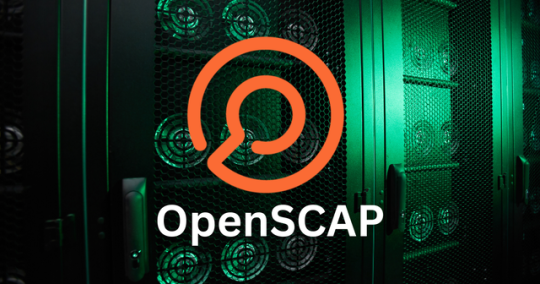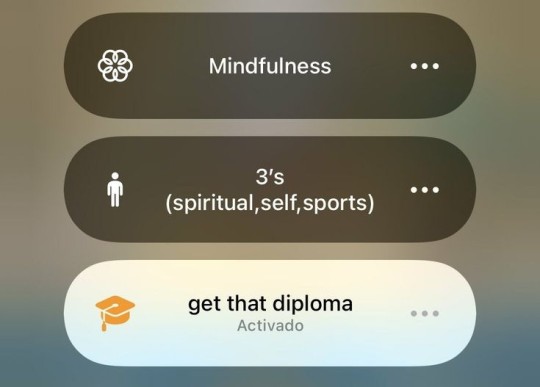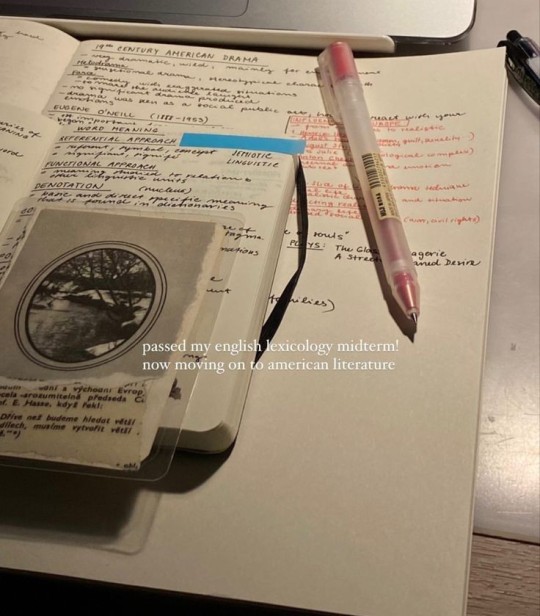#introduction to cybersecurity
Explore tagged Tumblr posts
Text
youtube
Cybersecurity is the practice of protecting computer systems, networks, data, and digital information from various threats and attacks, with the goal of ensuring the confidentiality, integrity, and availability of these resources. In today's highly interconnected and digital world, cybersecurity plays a crucial role in safeguarding sensitive information and maintaining the functionality of critical infrastructure.
In the digital landscape, various entities, including individuals, businesses, governments, and organizations, face an array of cyber threats such as hacking, malware, phishing, ransomware, and data breaches. These threats can lead to financial losses, privacy violations, disruption of services, and even compromise national security.
To counter these threats, cybersecurity employs a multifaceted approach that involves technical solutions, policies, and human behavior. It encompasses a variety of disciplines, including information security, network security, application security, and more.
The importance of cybersecurity has grown exponentially with the increasing reliance on technology for personal, business, and government operations. As more and more sensitive data is stored, transmitted, and processed electronically, the risks associated with cyber threats have become more sophisticated and diverse.
Protecting yourself from online security threats is crucial in today's digital age, where cyberattacks and data breaches have become commonplace. Implementing effective security measures can help safeguard your personal information, financial data, and overall online presence.
By taking some comprehensive steps to protect your online security, you can significantly reduce the risk of falling victim to cyberattacks, data breaches, and other online threats. While no security measure is foolproof, a combination of awareness, vigilance, and proactive precautions can greatly enhance your online safety.
Escaping The Dangers: Ensuring Your Online Security
#cyber security#cybersecurity#what is cyber security#ethical hacking#escaping the dangers#ensuring your online security#LimitLess Tech 888#importance of cybersecurity#cyber security awareness#types of cyber security#why cybersecurity is important#cyber security basics#cyber security explained#how cyber security works#introduction to cybersecurity#cyber crime#dangers of online security#how to ensure your safety#how to stay safe online#cyber security threats#Youtube
0 notes
Text
youtube
Cybersecurity is the practice of protecting computer systems, networks, data, and digital information from various threats and attacks, with the goal of ensuring the confidentiality, integrity, and availability of these resources. In today's highly interconnected and digital world, cybersecurity plays a crucial role in safeguarding sensitive information and maintaining the functionality of critical infrastructure.
In the digital landscape, various entities, including individuals, businesses, governments, and organizations, face an array of cyber threats such as hacking, malware, phishing, ransomware, and data breaches. These threats can lead to financial losses, privacy violations, disruption of services, and even compromise national security.
To counter these threats, cybersecurity employs a multifaceted approach that involves technical solutions, policies, and human behavior. It encompasses a variety of disciplines, including information security, network security, application security, and more.
The importance of cybersecurity has grown exponentially with the increasing reliance on technology for personal, business, and government operations. As more and more sensitive data is stored, transmitted, and processed electronically, the risks associated with cyber threats have become more sophisticated and diverse.
Protecting yourself from online security threats is crucial in today's digital age, where cyberattacks and data breaches have become commonplace. Implementing effective security measures can help safeguard your personal information, financial data, and overall online presence.
Escaping The Dangers: Ensuring Your Online Security
#cyber security#cybersecurity#what is cyber security#ethical hacking#escaping the dangers#ensuring your online security#LimitLess Tech 888#importance of cybersecurity#cyber security awareness#types of cyber security#why cybersecurity is important#cyber security basics#cyber security explained#how cyber security works#introduction to cybersecurity#cyber crime#dangers of online security#how to ensure your safety#how to stay safe online#cyber security threats#Youtube
0 notes
Text
I'm new here. I don't know how to use this app so I'll just introduce myself and post a picture of a gecko. I'm a tech nerd who uses the best distro Arch linux and likes security related topics. I also like exotic animals. I keep few reptiles, Mantises and tarantulas. In spare time I do diy stuff and play mmorpg

60 notes
·
View notes
Text
Greetings fellow freaks and geeks!
Allow me to introduce myself:
My name is Haru
Im (at the time of posting this) 18!
Im a Therian and a furry :3
Im pansexual and genderfluid (so if possible please ask for my pronouns)
I enjoy Cybersecurity, general technological devices, music (punk, rock, indie and a whole lot more)
Im diagnosed autistic, ADHD, dislexic, disbraxic, disgraphic and more ^^;
Im currently self teaching for red team cybersecurity, art and guitar as well as fursuit making and other crafty things
Currently this is my main blog where ill post just whatever and i plan on making 2 other blogs but ill announce when that is ;3
For now enjoy the insane ramblings about anything and everything all of the time.
#intro post#introduction#blog intro#main blog#furry#therian#punk rock#dedsec#hack the planet#cybersecurity#red team#pentesting
2 notes
·
View notes
Text
pinned intro
(*^^*)♡

I'm Sonii/Rian, either one is good! ☆
they/any pronouns
I'm an internet art angel ʚ₍ᐢ. .ᐢ₎ɞ with bendy joints and a broken hand. Despite it all, my passion projects live on!
original work/art tag
YouTube Bluesky Mastodon TikTok Twitch VGen
more below...
I'm nonbinary and have a complex relationship with gendered expressions. Most terms are okay with me, but almost none of them are truly correct. If you're confused, ask. I don't bite...
I'm currently a cybersecurity and compsci student! I'm also dabbling in game dev and music production. Needless to say, I like playing on computers ૮ ˶ᵔ ᵕ ᵔ˶ ა...
I have joint hypermobility and suspected hEDS (hypermobile Ehlers-Danlos Syndrome), which makes daily living a bit tragic and painful. I used to draw a lot, but I've started broadening my creative outlets to help protect my joints.
I make content about accessibility in games, specifically in regards to navigating chronic joint pain while gaming. Gaming should be for everybody!
Hobbies + Interests include:
Making game music in FL Studio Trying to teach myself Godot 4............. Collaborative character writing Pixel art + low res art Rhythm games (ouch. this is my guilty pleasure) Playing FFXIV Frutiger Aero aesthetic Houseki no Kuni Goals: Finish some small games in Godot Fully code Neocities site Finish my first sprite sheet Get a wheelchair Write and release an LP on Bandcamp
Sonii OUT. If you wanna chat or become mutuals, HMU!!
#intro post#introduction#nonbinary#agender#bigender#gnc#fl studio#godot#pixel art#ehlers danlos syndrome#hypermobility#hypermobile eds#computer science#comp sci#cybersecurity#stem major#women in stem#frutiger aero#houseki no kuni#game development#disabled artist#final fantasy xiv
3 notes
·
View notes
Text
0 notes
Text
Openscap: Open Source Vulnerability and Compliance Scanner
Openscap: Open Source Vulnerability and Compliance Scanner @vexpert #vmwarecommunities #100daysofhomelab #homelab #OpenSCAPintroduction #OpenSCAPscannerinstallation #SecurityContentAutomationProtocol #Linuxsecurity
Open-source security tools are not only cost-effective, they are also very powerful. OpenSCAP is a robust line of defense in achieving and maintaining system security compliance. It delivers many features, including for the community and enterprise businesses. Table of contentsWhat is OpenSCAP?Diving Deeper into the SCAP Security GuideCustomizing OpenSCAP with Your Own Content FilesOpenSCAP…

View On WordPress
#Customizing OpenSCAP content files#Cybersecurity best practices#OpenSCAP commands#OpenSCAP for enterprise systems#OpenSCAP introduction#OpenSCAP scanner installation#Red Hat Enterprise Linux security#SCAP Security Guide#Security Content Automation Protocol#SUSE Linux Enterprise Server security
0 notes
Text

Free Resources for Learning Cybersecurity
I created this post for the Studyblr Masterpost Jam, check out the tag for more cool masterposts from folks in the studyblr community!
Free Online Courses
Linux Foundation Cybersecurity Courses - many of their beginner/introductory courses are free
Professor Messer's Security+ Course - a great intro to cybersecurity, gave me the skills to pass my Security+ exam
Khan Academy Cryptography - solid foundations for understanding the math behind encryption
ISC2's new entry level cert & training CC is free, although for a limited time
Linux Journey - learn Linux, the command line, and basic networking
Free CTFs & Ways to Practice
What is a CTF? - HackTheBox isn't a free platform, but this is a good article explaining what a CTF is and how to approach it
OverTheWire Bandit - practice your Linux skills
PicoCTF - this one already ran this year but their website has plenty of resources
Microcorruption - binary exploitation challenges
Hacker101 - web security CTF
Cryptopals Cryptography Challenges
Nightmare - binary exploitation & reverse engineering challenges
Cybersecurity News: follow what's happening in the industry
KrebsOnSecurity - security & cybercrime news, investigative journalism
SANS StormCast - daily 5-minute security news podcast
SANS Internet Storm Center - security blog posts
Cisco Talos blog - security news, threat intelligence & malware investigations
Schneier on Security - security & society
Black Hills Information Security webcasts
Darknet Diaries podcast
Other Free Resources
Trail of Bits's CTF Field Guide
PicoCTF Resources and Practice
SANS Cheat Sheets - all areas of security & tech
OWASP Cheat Sheets - application security & web attacks
LaurieWired's YouTube channel - high-quality videos on low-level tech
LiveOverflow's YouTube channel - binary exploitation
SANS Webinars
Cybersecurity Certifications Roadmap
Cybersecurity Job Supply and Demand Map (for the U.S.)
EFF's Surveillance Self-Defense - guides for how to protect yourself online
Don't Forget the Library!
If you have access to a public or school library, check out their technical books and see what they have to offer. O'Reilly and No Starch Press are my favorite publishers for technical and cybersecurity books, but be on the lookout for study guides for the Security+ and other certifications - these will give you a good introduction to the basics. I wrote more about cybersecurity books in yesterday's masterpost.
46 notes
·
View notes
Text



Resources and study tips to get you in cyber forensics
Master post • Part1 • part2
let's get you prepped to be a cyber sleuth without spending any cash. Here’s the ultimate tips and resources.
Ps: you can't become one while doing these pointers but you can experience the vibe so you can finally find your career interest


### 1. **Digital Scavenger Hunts**
- **CTF Challenges (Capture The Flag)**: Dive into platforms like [CTFtime](https://ctftime.org/) where you can participate in cyber security challenges. It's like playing *Among Us* but with hackers—find the imposter in the code!
- **Hunt A Killer (Digitally)**: Create your own digital crime scenes. Ask friends to send you files (like images, PDFs) with hidden clues. Your job? Find the Easter eggs and solve the case.
### 2. **YouTube University**
- **Cyber Sleuth Tutorials**: Channels like *HackerSploit* and *The Cyber Mentor* have playlists covering digital forensics, cybersecurity, and more. Binge-watch them like your fave Netflix series, but here you're learning skills to catch bad guys.
- **Live Streams & Q&A**: Jump into live streams on platforms like Twitch where cybersecurity experts solve cases in real-time. Ask questions, get answers, and interact with the pros.
### 3. **Public Libraries & eBook Treasure Hunts**
- **Library eBooks**: Most libraries have eBooks or online resources on digital forensics. Check out titles like *"Hacking Exposed"* or *"Digital Forensics for Dummies"*. You might have to dig through the catalog, but think of it as your first case.
- **LinkedIn Learning via Library**: Some libraries offer free access to LinkedIn Learning. If you can snag that, you've got a goldmine of courses on cybersecurity and forensics.
### 4. **Virtual Study Groups**
- **Discord Servers**: Join cybersecurity and hacking communities on Discord. They often have study groups, challenges, and mentors ready to help out. It's like joining a digital Hogwarts for hackers.
- **Reddit Threads**: Subreddits like r/cybersecurity and r/hacking are packed with resources, advice, and study buddies. Post your questions, and you’ll get a whole thread of answers.
### 5. **DIY Labs at Home**
- **Build Your Own Lab**: Got an old PC or laptop? Turn it into a practice lab. Install virtual machines (VMware, VirtualBox) and play around with different operating systems and security tools. It’s like Minecraft but for hacking.
- **Log Your Own Activity**: Turn on logging on your own devices and then try to trace your own steps later. You’re basically spying on yourself—no NSA required.
### 6. **Community College & University Open Courses**
- **Free Audit Courses**: Many universities offer free auditing of cybersecurity courses through platforms like Coursera, edX, and even YouTube. No grades, no stress, just pure learning.
- **MOOCs**: Massive Open Online Courses often have free tiers. Try courses like "Introduction to Cyber Security" on platforms like FutureLearn or edX.
### 7. **Scour GitHub**
- **Open-Source Tools**: GitHub is full of open-source forensic tools and scripts. Clone some repositories and start tinkering with them. You’re basically getting your hands on the tools real investigators use.
- **Follow the Code**: Find projects related to digital forensics, follow the code, and see how they work. Contribute if you can—bonus points for boosting your resume.
### 8. **Local Meetups & Online Conferences**
- **Free Virtual Conferences**: Many cybersecurity conferences are virtual and some offer free access. DEF CON has a lot of free content, and you can find tons of talks on YouTube.
- **Hackathons**: Look for free entry hackathons—often universities or tech companies sponsor them. Compete, learn, and maybe even win some gear.
### 9. **DIY Challenges**
- **Create Your Own Scenarios**: Get a friend to simulate a hack or data breach. You try to solve it using whatever tools and resources you have. It's like escape rooms, but digital.
- **Pen & Paper Simulation**: Before diving into digital, try solving forensic puzzles on paper. Map out scenarios and solutions to get your brain wired like a detective.
### 10. **Stay Updated**
- **Podcasts & Blogs**: Tune into cybersecurity podcasts like *Darknet Diaries* or follow blogs like *Krebs on Security*. It’s like getting the tea on what’s happening in the cyber world.
### 11. **Free Software & Tools**
- **Autopsy**: Free digital forensics software that helps you analyze hard drives and mobile devices. Think of it as your magnifying glass for digital clues.
- **Wireshark**: A free tool to see what's happening on your network. Catch all the data packets like you're a digital fisherman.
### 12. **Online Forensics Communities**
- **Free Webinars & Workshops**: Join communities like the *SANS Institute* for free webinars. It's like attending a masterclass but from the comfort of your gaming chair.
- **LinkedIn Groups**: Join groups like *Digital Forensics & Incident Response (DFIR)*. Network with pros, get job tips, and stay in the loop with the latest trends.
### 13. **Practice Cases & Mock Trials**
- **Set Up Mock Trials**: Role-play with friends where one is the hacker, another the victim, and you’re the investigator. Recreate cases from famous cybercrimes to see how you'd solve them.
- **Case Studies**: Research and recreate famous digital forensic cases. What steps did the investigators take? How would you handle it differently?


There you have it—your roadmap to becoming a cyber sleuth without dropping a dime. You don't have time find your interest after paying pennies to different ppl and colleges. You can explore multiple things from comfort of your home only if you want to.

#light academia#study blog#academic validation#academic weapon#student life#study motivation#study with me#study#studyblr#studyblr community#masterpostjam#codeblr
29 notes
·
View notes
Text
¿Qué Distribución de Linux Deberías Usar Según tus Intereses? / Which Linux Distribution Should You Use Based on Your Interests?
Introducción / Introduction
Español: Linux ofrece una vasta gama de distribuciones, cada una diseñada para diferentes intereses y necesidades. Ya sea que te enfoques en el desarrollo de software, la administración de sistemas, la creación de contenido multimedia, o simplemente busques una alternativa a Windows o macOS, hay una distribución de Linux que se adapta a ti. Además, Linux proporciona ventajas significativas sobre otros sistemas operativos en muchos de estos escenarios. En este blog, exploraremos cuál distribución es ideal según tus intereses y las razones por las que Linux puede ser una mejor opción en comparación con Windows o macOS. Presentaremos esta información de manera accesible para tanto hispanohablantes como angloparlantes.
English: Linux offers a wide range of distributions, each designed for different interests and needs. Whether you focus on software development, system administration, multimedia creation, or simply seek an alternative to Windows or macOS, there’s a Linux distribution that suits you. Additionally, Linux offers significant advantages over other operating systems in many of these scenarios. In this blog, we’ll explore which distribution is ideal based on your interests and why Linux might be a better choice compared to Windows or macOS. This information will be presented in a way that is accessible to both Spanish and English speakers.
1. Ubuntu: Ideal para Principiantes, Desarrollo y Diseño Gráfico / Ubuntu: Ideal for Beginners, Development, and Graphic Design
Español: Ubuntu es la elección perfecta para quienes son nuevos en Linux o buscan una distribución estable y fácil de usar para el desarrollo de software. Su amplia compatibilidad con aplicaciones como GIMP, Inkscape y Blender también la convierte en una excelente opción para diseñadores gráficos e ilustradores. Además, Ubuntu ofrece soporte para una variedad de herramientas de desarrollo, lo que la hace ideal para programadores.
English: Ubuntu is the perfect choice for those new to Linux or looking for a stable and user-friendly distribution for software development. Its broad compatibility with applications like GIMP, Inkscape, and Blender also makes it an excellent choice for graphic designers and illustrators. Additionally, Ubuntu offers support for a variety of development tools, making it ideal for programmers.
2. Fedora: Para Desarrolladores, Seguridad y Creación de Contenido Multimedia / Fedora: For Developers, Security, and Multimedia Creation
Español: Fedora se destaca por estar a la vanguardia en términos de tecnología y seguridad. Es una distribución ideal para desarrolladores y aquellos interesados en seguridad informática. Además, Fedora es compatible con una amplia gama de software para edición de video, audio y animación, como Kdenlive, Audacity y Blender, lo que la convierte en una opción sólida para creadores de contenido multimedia.
English: Fedora stands out for being at the forefront of technology and security. It’s an ideal distribution for developers and those interested in cybersecurity. Additionally, Fedora supports a wide range of software for video editing, audio production, and animation, such as Kdenlive, Audacity, and Blender, making it a solid choice for multimedia content creators.
3. Debian: Para Administradores de Sistemas, Usuarios Avanzados y Diseño 3D / Debian: For System Administrators, Advanced Users, and 3D Design
Español: Debian es conocida por su estabilidad, lo que la hace ideal para administradores de sistemas y usuarios avanzados. Su entorno sólido también es adecuado para diseñadores 3D que buscan un sistema confiable para trabajar con software como Blender o FreeCAD. Debian proporciona un entorno de trabajo predecible y seguro, ideal para manejar proyectos de gran escala y complejidad.
English: Debian is known for its stability, making it ideal for system administrators and advanced users. Its solid environment is also suitable for 3D designers looking for a reliable system to work with software like Blender or FreeCAD. Debian provides a predictable and secure work environment, ideal for handling large-scale and complex projects.
4. Arch Linux: Para Usuarios Avanzados, Personalización Extrema y Jugadores / Arch Linux: For Advanced Users, Extreme Customization, and Gamers
Español: Arch Linux es la distribución preferida por aquellos que desean un control total sobre su sistema. Es ideal para usuarios avanzados que buscan personalización extrema y desean optimizar su sistema para el rendimiento en juegos. Arch te permite configurar tu entorno de juego con precisión, optimizando el rendimiento con herramientas como Steam y Proton para jugar títulos de Windows en Linux.
English: Arch Linux is the preferred distribution for those who want full control over their system. It’s ideal for advanced users seeking extreme customization and who want to optimize their system for gaming performance. Arch allows you to finely tune your gaming environment, optimizing performance with tools like Steam and Proton for playing Windows titles on Linux.
5. Linux Mint: Alternativa a Windows para Escritorio y Creadores de Contenido / Linux Mint: Windows Alternative for Desktop Users and Content Creators
Español: Linux Mint ofrece una experiencia de usuario familiar para aquellos que buscan una alternativa a Windows, siendo particularmente amigable para el uso en escritorios. También es una excelente opción para creadores de contenido que necesitan una distribución simple y efectiva para trabajar con herramientas como OBS Studio, GIMP y Audacity. Mint combina facilidad de uso con estabilidad, facilitando la transición desde Windows.
English: Linux Mint offers a familiar user experience for those seeking an alternative to Windows, being particularly user-friendly for desktop use. It’s also an excellent choice for content creators who need a simple and effective distribution for working with tools like OBS Studio, GIMP, and Audacity. Mint combines ease of use with stability, making the transition from Windows smooth.
6. Pop!_OS: Para Desarrolladores, Gamers y Diseño 3D / Pop!_OS: For Developers, Gamers, and 3D Design
Español: Pop!_OS es una distribución basada en Ubuntu, optimizada para desarrolladores y jugadores. Incluye soporte nativo para GPUs, lo que la hace ideal para jugar y trabajar en proyectos de diseño 3D con software como Blender. Además, su enfoque en la productividad y el flujo de trabajo eficiente la convierte en una excelente opción para desarrolladores que buscan un entorno de trabajo optimizado.
English: Pop!_OS is a Ubuntu-based distribution optimized for developers and gamers. It includes native GPU support, making it ideal for gaming and working on 3D design projects with software like Blender. Additionally, its focus on productivity and efficient workflow makes it an excellent choice for developers looking for an optimized work environment.
Ventajas de Linux Sobre Windows y macOS / Advantages of Linux Over Windows and macOS
Español: Linux ofrece diversas ventajas sobre Windows y macOS, incluyendo:
Costo: La mayoría de las distribuciones de Linux son gratuitas, lo que reduce significativamente el costo en comparación con las licencias de Windows o macOS.
Seguridad: Linux es conocido por su robusta seguridad, con menos vulnerabilidades a malware debido a su arquitectura y modelo de permisos.
Rendimiento: Linux es más eficiente en el uso de recursos, ofreciendo mejor rendimiento, especialmente en hardware más antiguo o limitado.
Personalización: Con Linux, tienes un control total sobre tu sistema, permitiendo ajustar cada aspecto según tus necesidades, lo que es ideal para usuarios avanzados y creadores de contenido.
English: Linux offers several advantages over Windows and macOS, including:
Cost: Most Linux distributions are free, significantly reducing costs compared to Windows or macOS licenses.
Security: Linux is known for its robust security, with fewer vulnerabilities to malware due to its architecture and permission model.
Performance: Linux is more resource-efficient, offering better performance, especially on older or limited hardware.
Customization: With Linux, you have full control over your system, allowing you to tweak every aspect to fit your needs, ideal for advanced users and content creators.
Conclusión / Conclusion
Español: Elegir la distribución de Linux adecuada puede mejorar significativamente tu experiencia, dependiendo de tus intereses y necesidades. Desde Ubuntu y Fedora para principiantes y desarrolladores, hasta Arch Linux para usuarios avanzados y jugadores, y Pop!_OS para creadores de contenido y diseño 3D, hay una distribución que se adapta a cada perfil. Linux ofrece notables ventajas sobre Windows y macOS, convirtiéndose en una opción atractiva para una amplia variedad de usuarios.
English: Choosing the right Linux distribution can significantly enhance your experience, depending on your interests and needs. From Ubuntu and Fedora for beginners and developers, to Arch Linux for advanced users and gamers, and Pop!_OS for content creators and 3D design, there’s a distribution that fits every profile. Linux offers notable advantages over Windows and macOS, making it an attractive option for a wide range of users.
#Linux#DistribucionesLinux#Ubuntu#Fedora#Debian#ArchLinux#LinuxMint#PopOS#AlternativaWindows#SistemaOperativo#PersonalizaciónLinux#VentajasLinux#LinuxVsWindows#LinuxVsMac#DesarrolloSoftware#AdministraciónSistemas#SeguridadLinux#RendimientoLinux#DiseñoGráfico#Videojuegos#Animación#Diseño3D#CreaciónDeContenido#Ilustración#Multimedia
30 notes
·
View notes
Text
Thinking about the 2020 Zoom into Xadia conference again, between the psudo-modern AU Cast on Zoom opening and then the tabletop game.
Between people continuously breaking into the Zoom call through one way or another, Rayla and Callum being in the same room and trying to deny it, Soren on cybersecurity but accidentally sending Claudia a link, Viren Dadding It Up and not knowing how to get out...nor is he entirely sure how he got in. And finally Aaravos yells at them for complaining when he's been "involuntarily social distancing for centuries" and claiming to be on every call all the time...while having a bad connection and his voice cutting out (must have been a nasty storm in the Sea of the Castout thinking about it now)
And of course the utter disaster of the Tabletop game that makes Aaravos rage quit and end the game because everyone immediately broke out into a fight after finishing their character introductions. (Which actually has my favorite Aaravos line read even though it's not cannon, and it's the weary "Viren???" when he calls him to describe his character)
22 notes
·
View notes
Note
I am so happy that i am the first one to ask👉👈♡(> ਊ <)♡
Btw i wanted to ask more about Tatsuya and Seth ...they look dangerous but so cool..and does yuuta have haemophilia ..i guess.. and your artstyle is so beautiful and you draw the expressions so intricately... (◍•ᴗ•◍)❤I became your fan...
(~ ̄³ ̄)~ i fell in love with almost all of them..
i am so much interested to know more about them..i will be waiting for other characters' introduction and likes dislikes too..and i found yotsuya cute due to his character introduction stuff but when you told me more about it that's he's not as good actually i was shocked now he's the most interesting character for me...i cant wait for the game ..when will it come out..i will even read a webtoon with these characters...btw don't take a burden i am just asking in a lighthearted manner ..take care of yourself too...thank you !
Btw can i be 🤍 anon???
Aww, you're too sweet!! Thank you so much for your kind words!! <3 (๑>◡<๑) You really boosted my self-esteem hehe. The game will come out probably in a demo maybe next year? it's going to be a really packed game with a lot of content (or so I hope) It's funny because Seth was going to be the protagonist of a webcomic I was planning but I ditched the idea because it really wasn't my thing (I like making short comics though!). But I'm planning to make an RPG maker game with him (˵ •̀ ᴗ - ˵ ) ✧ I can give you some little silly details about Seth and Yotsuya just for the funsies! ✦ ┆・Seth enjoys taking care of flowers because he likes the feeling of caring for something alive (he'd like to get a puppy too.) His favorite flowers are Marigolds and Sunflowers. His least favorite is Roses (he hates the thorns.) ✦ ┆・Seth is really tall, about 1,97 c. m. (about 6,5 feet I think??) He can change his size though. ✦ ┆・Seth Likes to learn about anything and everything and thanks to him being a machine he has an extremely photographic memory, that can be a little dangerous, though he will remember anything you tell him, so you better not lie! ✦ ┆・Seth rarely stops smiling, he doesn't know very well about expressing his emotions. So he tries to smile all the time, it looks a little uncanny and to be honest he likes being a little creepy. When he's not smiling, that's not a good signal at all. ✦ ┆・Yotsuya like a good stressed office worker likes gambling... a lot. Don't worry he's not addicted or anything and he's pretty good at the games he plays, especially poker, his poker face is on point (*wink wink*) ✦ ┆・Yotsuya hates germs, he kinda hates using public transport like trains or buses just because he hates the feeling of being in the same space with other people. He doesn't mind you tough, you're not disgusting to him at all! ✦ ┆・Yotsuya knows a lot about cybersecurity, he worked as a programmer for a company for quite some while, quite dangerous knowledge for a stalker like him if you ask me. (And his house is pretty secure too, he has cameras around all the corners.) Take care of yourself too, anon! Hope you have a great day! <3
147 notes
·
View notes
Text

plans for the new year: committing self to obtaining certification in Hacker X's courses on becoming a [white-hat] hacker. not only are the skills useful to know in regards to cybersecurity when protecting one's self online, but also commonly a staple for modern companies to employ.
took them up on their current deal of $25 for lifetime access to the introduction courses. let's just say i'm no stranger to utilizing what lies in the shadows of the web. i've never believed in the act of keeping secrets—but this will remain a topic i don't discuss here/there/anywhere.
all i will share is: when i had attended public school as a teenager, i received detention but once... unofficially for "hacking a fellow student's email account [impersonation]." my dad had later informed me that the principal admitted he was "impressed by my work" and!was "clueless as to how i bypassed their system." [2008.] 🥷🧮
#tbh: how i obtain the HQ media i post here lol...#hackers#ethical hacking#cybersecurity#tech nerd#g
14 notes
·
View notes
Text

"Eye of the Harmonograph" by elkement 2024. 3D Lissajous figures.
Thinking about inspiration today! Once, an art platform was asking about who - which artists - have been inspiring me. I want to recapture which artists came to my mind when I filled in that artist profile:
~ Physicist (and noble prize winner) Roger Penrose. I read his book The Road to Reality during the pandemic. Consider it a "popular science book", but nit shy of adding mathematics. I was most enchanted by his hand-drawn old-school illustrations. This book inspired both my attempts at drawing, as well as my digital art. The latter indirectly as my visualization of intriguing functions mentioned by Penrose finally made me install SageMath... which led me to explore threejs and math-related digital art.
~ M. C. Escher who will not need any introduction. I once read he has been more revered among mathematicians than among artists. I don't care. "Gödel. Escher, Bach" was THE formative, influential book of my teenage years. I had always figured, Gödel was my hero. I was into math, not art and music. Or so I thought. Now, I think that maybe, it was Escher after all.
~ An Austrian polymath, the late Peter M. Schuster. He was a laser physicist by training, started a laser physics company, then became a science write specializing in biographies of Austrian physicists, funded a museum called a "Center for the History of Physics". He published poetry and mentioned in an interview he was on the fence of studying either physics or literature. (I wrote kind of a tribute here: https://elkement.art/2021/04/11/peter-m-schuster-on-history-of-science/).
With a little deliberation, I'd add the following three today:
~ Douglas Hofstadter, the author of Gödel, Escher, Bach. His books has stunning images, including also a plot he created during his PhD in solid state physics. I had forgotten that in the meantime, but I guess the fact(?) that a PhD in physics could prepare you for a career / life of making connections between all kinds of hard sciences, arts and literature was certainly something that might have shaped my worldview. My thoughts about Gödel. Escher, Bach including quotes of Hofstadter - how he was thinking about the reception of his book: https://elkement.art/2014/04/26/godel-escher-bach-and-strange-loops-nostalgia-and-random-thoughts/
~ Clifford Stoll - also a wanderer between worlds (https://en.wikipedia.org/wiki/Clifford_Stoll), also between worlds dear to me. An astrophysicist who became an expert in cyber security and accidentally started the field of reverse engineering. His book The Cuckoo's Egg is legend in cybersecurity circles. But before I read his book, I actually stumbled upon a video of his: Where he talks about selling ... Klein bottles of blown glass, out of his charming "Doc-Emmet-Brown-style" workshop and art studio!
~ Paul Friedlander - an artist (with degrees in physics and in fine arts) who pioneered what may now be called New Media Art. Look at his light sculptures: https://paulfriedlander.com/Gallery.html . I saw an interview with him... and he also has a Doc-Emmet-Brown-style workshop and art studio. Adding him is actually cheating, or time-travelling. I was quite a while into my own kind of digital art inspired by physics when I stumbled upon an interview with him. But I could not help thinking: Would I have started creating sooner had I noticed that artists like that do actually exist?
13 notes
·
View notes
Text
studyblr intro (fr I promise-)
hihi, I'm axy!
this is the third iteration of my introduction to the studyblr community because life got in the way twice before (I went to a different country for two months and saw so many cats it was crazy) and completely stopped posting both times lol
but now everything has settled into a routine (so far. not to jinx it or anything-) and I'm ready to return :D
I am officially a university student! no one is more surprised than me, trust me, but I'm here, a fledgling compsci engineer, and I'm very happy about it!
I'm in my first semester, and honestly thriving despite having studied mostly biology in previous years. never could've guess that coding and math could be so fulfilling
that's mostly the gist of it! here's more information!
about me:
he/they
south asian (indian)
pisces
pretty sure I have executive dysfunction and autism 👍
will offer up my soul for a Monster energy drink
really like the color yellow and pink, I think they're neat :]
interests, hobbies and everything in between:
i fucking love physics (and swearing im sorry in advance-)
drawing (amateur but I'm trying to learn via youtube)
reading (mostly fanfiction, I'm in so many fandoms its awesome, but open to every genre)
writing (again, fanfiction, huge procrastinator, unhealthy obsession with metaphors)
music (unapologetic swiftie, but I do listen to tons of other - mostly mainstream - artists)
why did I make this blog?
for motivation! I have a severe lack of it and am scrounging up multiple, different sources of it!
to keep track of things! I'm very scatterbrained, and despite having like two different facilities to remember stuff!
my best friend @somniphobicfox is a force of nature who also has a studyblog (@a-fox-studies) and I can't and won't say no to her
things to expect:
updates on my progress with studying and random rants about the subject matter
my subjects include: math, physics, C programming, electronics, cybersecurity, english, a native language, design thinking (?? idk man) and HTML
pictures of my study space and the music I'm listening to.
the colors pink and yellow, because I'm kinda adopting the 'lack of aesthetic as an aesthetic' avenue with this - I'm really hopeless there - so you'll see a lot of posts with no structure at all or sometimes with too much structure
the lack of consistency is also an aesthetic - I blame the autism for both of these things
finally the weird punctuation pattern is intentional and I'm sorry if it bothers you
studyblrs that inspire me:
(still) pretty new here, so I only know a few, @a-fox-studies @notetaeker @problematicprocrastinator @ckmstudies @rambles-in-stem @thestudywithmeblog @studydiariesofaru @math-markers
Thank you for reading, and I hope my posts are consistent and able to inspire!! I'm sure I'll have a lovely time in this cozy community :)
(if you're confused that some of the reblogs talk about NEET its because this is a repurposed intro! for context, I started this blog when I was studying for a medical entrance exam, and when that didn't work out I'm now doing uh, engineering! classic desi pipeline honestly-) (I'm claiming the tag #axythings for my posts and my main blog is @tazlory [there might be nsfw beware] where I'm chaotic and wild)
#axythings#studyblr#studyblr introduction#study blog#studyblr intro post#studying#intro#new study blog#new studyblr#studyspo#study space#study movitation#studyblr community#blog intro
100 notes
·
View notes
Text
If this seems like a relatively subdued Pride Month, that's because the LGBTQ+ community is under more threat than usual this year.
For those in the LGBTQIA+ community, Pride month is a chance to be out, loud and proud. But in the United States, there's been an uneasy quiet hanging over this June. Big brands who once didn't think twice about cashing in on the pink dollar have scaled back support. The American offshoot of Target reduced the number of its stores carrying Pride-themed products this year after getting backlash in 2023. Nike, who became the subject of boycott calls last year over its marketing partnership with a transgender influencer, has also pulled back after offering Pride collections since 1999. [ ... ] The American Civil Liberties Union (ACLU) says it's currently monitoring 523 anti-LGBTQIA+ bills across the country. Over 300 of these bills were introduced in the first three weeks of 2024 alone, and 149 are still advancing or have been passed into law.
Just want to interject that the introduction of a bill in a state legislature does not mean it will pass. 2 homophobic bills were introduced in socialist/hippie Vermont, 6 in Illinois which was the first state to abolish sodomy laws, and 9 in liberal New Jersey. Don't count on them passing. But the 39 in deep red Missouri adds to its reputation as currently having the most homophobic state government in the US.
The majority of these bills relate to educational measures, through school sports bans, school facilities bans that prevent transgender students from using communal rest rooms, or curriculum censorship around in-school discussions of the queer community. Increasing anti-LGBTQIA+ rhetoric has also seen bills introduced that would forcibly out teachers and staff. [ ... ]
Trailing slightly behind is healthcare restrictions, where more than two-thirds of the bills (69 per cent) are aimed at limiting the accessibility of gender-affirming healthcare for transgender youth. This is despite the American Medical Association resolving to "protect access to evidence-based care for transgender and gender-diverse youth" in June last year. 2023 also marked the first time the ACLU saw drag bans introduced across US states.
It's not just Republicans in state legislatures to blame for increased homophobia. There also billionaire extremists with social media empires.
Notably, Dr Ellis points to billionaire Elon Musk's October 2022 takeover of X — formerly Twitter — which saw the mention of grooming slurs against the LGBTQIA+ community jump by 119 per cent, according to the Center for Countering Digital Hate. The social media sphere also saw anti-LGBTQIA+ sentiment being taken up by foreign actors ahead of US election campaigns to sow division, according to Meta's head of Cybersecurity Policy, Nathaniel Gleicher.
Perhaps the most bizarre group in American politics is the Log Cabin Republicans.
Log Cabin Republicans president bizarrely defends Donald Trump's anti-LGBTQ+ record
Seriously, people in the LGBTQ+ community who support Republicans, Trump, and MAGA are in deep need of therapy. Imagine a hypothetical group like "Gazans for Netanyahu" to get some idea of how self-hating the Log Cabin Republicans are. Republicans are largely under the control of extremist Christian fundamentalists who would pass the most repressive homophobic laws they could get away with.
Back to the legislatures. It's a big mistake to neglect state government. Find out who represents you in your legislature. If they are Republicans, contact your state or county Democratic Party to learn how you can help defeat them.
Find Your Legislators Look your legislators up by address or use your current location.
#pride month#lgbtq+#homophobia#state legislatures#state government#log cabin republicans#donald trump#the gop#republican party#ekon musk#twitter/x#leave twitter#delete twitter#quit twitter#election 2024#vote blue no matter who
10 notes
·
View notes